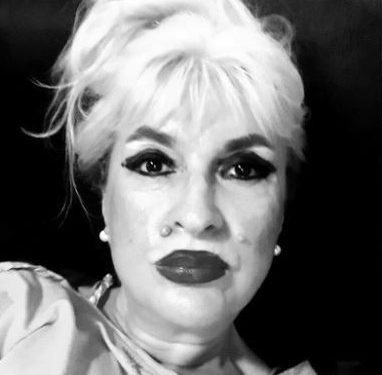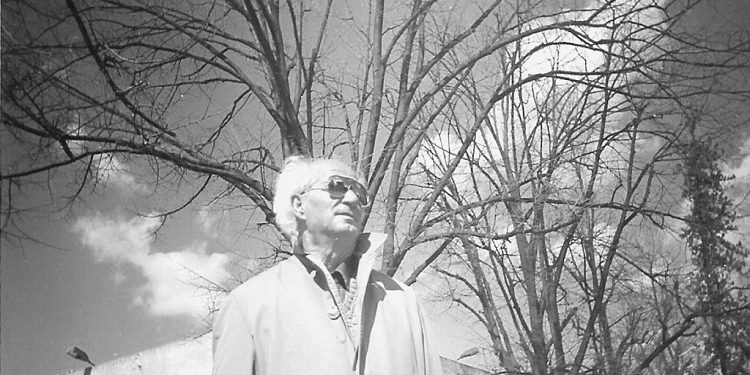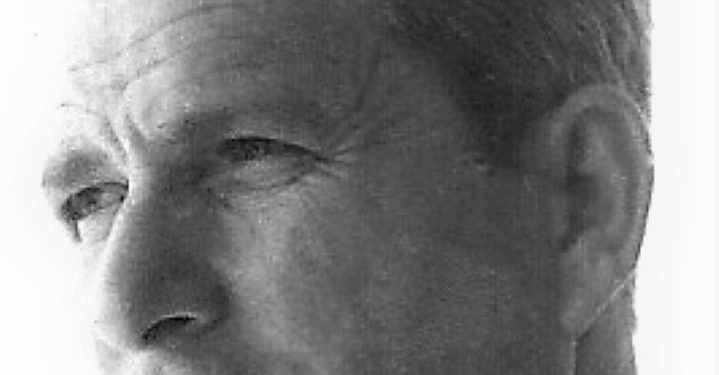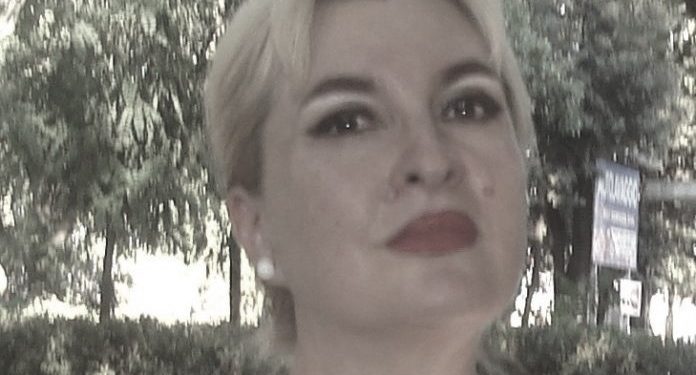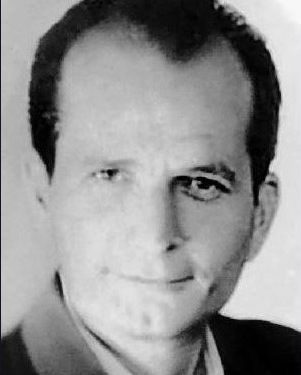Memorie.al / As a poet and publicist, but also as a person who has experienced communist persecutions, Elida Buçpapaj views the opening of files as a necessity for the victims. The writing of a feature story would completely change his life. That is where the beginning of his and his family’s suffering would start. We are talking about the poet Vehbi Skënderi (1929-2011). Vehbi Skënderi wrote the feature “Klubi i të qetëve” (The Club of the Calm/Quiet Ones) and a pamphlet for which he had collaborated with a prominent group of intellectuals, which he sent for publication to “Zëri i Popullit” (The Voice of the People). In it, he severely criticized the institutions of the Academy of Sciences. But the pamphlet was not published; instead, it was delivered to the Politburo. In the Central Committee, he was accused of being a nationalist. After escaping prison, he was sent for re-education, as a worker at the Vau i Dejës Hydropower Plant. But this was only the beginning of his suffering; they would continue to move him from one place to another, even to the waste department in the Polygraphic Combine.
His daughter, Elida Buçpapaj, a well-known poet and publicist, shares with readers the suffering that the communist system caused her family. She also emphasizes the necessity of opening the files in our country.
Ms. Elida, let’s start with your childhood. The years when the poet, Vehbi Skënderi, your father, told you fairy tales and fulfilled your every wish. How do you remember those years today?
My childhood was ephemeral, like a dream that lasts as long as dreams do. I remember Kindergarten 31 at the former ‘Block,’ where my father would come and pick me up and hold me in his arms. Sometimes he would take me to my grandmother, whose house was next to Hotel “International,” behind the former Writers’ League, on “Kavaja Street.” It was a street that smelled of smoke on winter nights; that’s how I remember it. My father adored me, he had turned me into a poetic object. In one poem he dedicated to me (because he dedicated endless poems to me), I considered the stars to be the moon’s children.
Then I remember the house. When he told me fairy tales. He created these fairy tales specifically for me. There was a rebellious mouse character that challenged the queen and went on adventures. Then he would declaim Noli’s poems to me, because he declaimed like a great actor; imagine a child who hasn’t even started kindergarten hearing; Rent or Marathonomak (Run, Marathoner) or Anës Lumenjve (By the Rivers), then he would declaim his own poems to me, holding me on his knees in front of the typewriter, or he would read books to me. Sometimes he would take me to the magazine ‘Ylli’ (Star) where he worked; I remember everything through a fog. When I went to the magazine ‘Ylli,’ I remember Ajtanga Lubonja, who worked with my father.
When I turned five, my father brought his colleague, the photographer of ‘Ylli’ magazine, Petrit Kumi, home, who took very beautiful pictures of me. Although I had blonde hair, he told my mother to comb it à la Jackie Kennedy, with ribbons. The magazine ‘Ylli’ at that time had a very modern vision, as several writers and poets worked there, such as Naum Prifti, Kin Dushi, and Qamil Buxheli was the editor-in-chief. The Writers’ League was where the National Theater is today; my father would sometimes take me there too; he liked to play chess, although he wasn’t proud of being a great player. But everything ended before it even started well and vanished in the blink of an eye.
Immediately after the publication of the feature “The Club of the Calm Ones or The Club of the Happy Ones” about the Club of the League of Writers and Artists, in 1967, your life would change completely. Your father’s worries were also part of yours…! What do you remember from that period?
The genesis of our suffering started with the feature “The Club of the Calm Ones.” I myself have never read this feature, because, as I told you, I was very young, and they destroyed it. They came to the house and took the copies he had. There were no computers back then like today. It might perhaps be in the State Archive. But my father’s ordeal began when, in the same year as “The Club of the Calm Ones,” collaborating with a prominent group of intellectuals, such as Professor Selman Riza, Professor Ligor Mile, Professor Dhimitër Pilika, Colonel Dilaver Radeshi, the well-known historian Zija Shkodra, Major Bektash Bedo, etc., he wrote another pamphlet, which he submitted for publication in ‘Zëri i Popullit’.
It severely criticized some institutions of the Academy of Sciences. According to a biography written by my father himself, this pamphlet criticized the Institute of History, which, instead of dealing with major figures and eras of national history, only dealt with Haxhi Qamili, failing to write any monograph on Pyrrhus of Epirus, Teuta of Illyria, Skanderbeg, Ali Pasha Tepelena, Hasan Prishtina, Ismail Qemali, and Fan Noli, and failing to conduct any study on Antiquity, the Middle Ages, the National Renaissance, and failing to do any study on Kosovo. The Institute of Linguistics was also criticized for not having yet prepared the Dictionary of the Albanian Language at that time. These two institutions, which were directly covered by the criminal Manush Myftiu, formed the ideological basis of the system.
The pamphlet was not published. ‘Zëri i Popullit’, which was led by Todi Lubonja at the time, handed the manuscript over to the First Secretary of Tirana, and the Politburo dealt with it, labeling it: “hostile group activity, the same as the Tirana Party Conference.” My father told me that in the Central Committee, during the sessions of terror of the political trial, he was accused of anti-party activity because, according to them, he was attacking the institutions of the state’s superstructure, and he was also accused of being a nationalist, as he declared that he saw Kosovo as part of Albania. The trial was so horrific that one of the participants, the late Bektash Bedo, killed himself.
I hadn’t started school yet, but I experienced the horror of my father’s delays, who returned at midnight, devastated by the interrogation. I also remember how my father cried when Bektash Bedo killed himself. When he escaped prison and was sent for re-education as a worker at the Vau i Dejës Hydropower Plant, this seemed like salvation to the people at home.
I remember that on the night the decision was made by the Central Committee, I didn’t have a concept of time, and it seemed like the middle of the night when my youngest uncle’s wife took me, and together we went to a pastry shop that was where the square in front of the Museum is today, to buy tulumba (a dessert) for the whole family who was waiting for us. And precisely here my childhood would end, before even going to the first grade, when my father left for Vau i Dejës and all my fairy tales, recitations, and childhood itself would be interrupted.
The regime deprived him of the right to publish and sent him to the construction sites of the working class…! What can you say today, after so many years, about this punishment by the system?
The punishment in Vau i Dejës was one of the punishments, or the prelude to the punishments that never left my father until he died here in Switzerland. The Albanian Embassy in Bern held folklore meetings, bordering on banality, but never undertook an evaluative activity for my father. The fact that an former Central Committee censor, who remained unconverted and with a totalitarian mindset, despite being appointed by the Democratic Party (PD), stayed at the head of the Albanian Embassy for 8 years, shows that Albania does not yet have a genuine democratic system.
After a political trial, my father was sent to work as a laborer at the Vau i Dejës hydropower plant. They took away his right to write and publish. He worked three shifts as a surveyor. He spoke to us on the phone twice a week. Together with my mother, we went to the Central Post Office in Tirana, because we didn’t have a phone at home, and the neighbors were bothered and did not allow a young woman and a child to speak from their home phone with someone condemned by the Party.
At the construction site, my father set himself a spending quota, eating only 67 lek per day, and sending the rest to my mother for my upbringing. He had not yet turned 40 when he went to Vau i Dejës. But despite his suffering and the isolation we experienced in Tirana, my father loved the people he worked with, and most of them, simple workers and engineers, returned his respect with respect. The Writers’ League was filled with hypocrites and opportunistic profiteers who, for their comfort, were ready to warm their hands in the fire of the inquisitors. At the site, he was often provoked, but after five years of working as a laborer, he was given a very positive reference from the site. My father always recalled the beautiful friendship with the painter Nexhmedin Zajmi, which strengthened him at the site.
From time to time the decisions against him were very different. How did your father manage to endure all kinds of torture…? Did he talk to you?
It was a very cruel regime. The isolation itself was such that it seemed like the whole globe began and ended within the territorial space of Albania. I was already going to school. With the key around my neck. My father had educated me about the world of books. When I came home, I read endless books. I may have been in the first or second grade when I read Andromache, the tragedy of Euripides, and I suffered with the fate of Hector’s widow, with whom Achilles’ son (Akili Pelidi) had fallen in love. I was also fascinated by Plutarch’s Parallel Lives.
I only read. When he finished his sentence, my father returned to Tirana. Between the years 1971-1972. He was allowed to work as a proofreader, then as an editor at the “Naim Frashëri” Publishing House in the poetry editorial office. We were happy, and just as we had somewhat recovered and resumed life, the “rehabilitation” lasted only a few months, and in March 1974, my father was accused of being part of a corruption center. This is a separate, unsolved topic.
I remember this phase of horror quite well now because I was in the eight-year school (middle school). This period, which lasted a decade and some, was the hell of hell. My father was dismissed from work, his right to publish was revoked again, his books were burned, and we as a family were interned in a terrible village behind Dajti Mountain. When they went to see it, my terrified mother only cried. We sold all the belongings in the house. With that money, my father begged my aunt to keep me so I could continue school, but my aunt’s husband refused, afraid. My father fell ill, vomiting bile day and night, unable to stand. He became skin and bones and aged immediately.
One day they called him in the neighborhood. It was a summer morning, and school was out. My uncle from Durrës, who worked as an officer, had come to take me on vacation. He was waiting for my father to return. We thought he might have been called to be given some job, even as a manual laborer, because he was unemployed. But they had ordered him to leave the house within a short time, and they had communicated his internment to that village behind Dajti.
This was the end, because from that village, it was hard for anyone to return, it was so isolated. When my father knocked on the door, I was reading in the bedroom. My uncle opened the door. My father ran to the balcony, to jump; our house was on the third floor, but my uncle stopped him and thus saved him. Startled by the noise, I came out of the room, and when I saw the scene, I started crying loudly. This period has much to tell. I will particularly remember the hostility of the people who left us alone, out of fear of the regime. Society had become even crueler than the regime, enjoying human dramas and tragedies.
One of the proposals made to him more than once was that he becomes part of the State Security (Sigurimi), which he never accepted… Where did he find the strength to oppose those in charge? Since the danger he faced was undoubtedly even more severe than the state he was already in?
Yes, my father told me that he was proposed several times to cooperate with the State Security and he refused. This cost him a lot in life, but it was the path he chose. Since I first started remembering, I recall my father always talking to me about justice and truth, about keeping one’s word and honesty. I also inherit the talent, the vocation for writing, from my father. I started publishing in 1991, and that’s why, right from the first writings, I demanded the opening of the State Security Files.
Their non-opening has been the misfortune of this transition, because the Sigurimi people have been part of the oligarchy and state leadership for 25 years. The transition was initially compromised by the involvement of former Sigurimi members in politics and institutions, and then by corruption. Without the integrity of the high public official, there is no rule of law.
On the other hand, there were you and your mother, what did you go through during that period, where you were considered to have a “bad biography” despite being an honored family? How difficult was the situation created in your family?
I have said elsewhere that Spaç (the notorious prison) was also lived in the middle of Tirana, when society put you in a virtual quarantine, like an infected person, and then pelted you with stones of insults. Imagine a young girl who is insulted in every way. Because society isolated those whom the party condemned, and when one family member was condemned, the entire family was condemned, including us children. Persecution was like a shirt you wore on your body. We were dealing with a persecutory society. My father’s colleagues had disappeared from the face of the earth.
Only Sterjo Spasse and Zisa Cikuli awaited my father. It is very painful when those who lived amidst privileges and experienced persecution as a phobia speak of persecution by the dictatorship, knowing that even within the Stalinist system; there was a struggle within the ranks. The dictatorship, with its servants, had eradicated our sense of perspective. We were without a future. Then my father was sent to work in the waste department, at the Polygraphic Combine.
I finished gymnasium (high school) and was sent to the “Josif Pashko” Combine, as a worker in the tile factory. But nevertheless, I have always said that in that disaster, we were still lucky, because the three of us who loved each other to the bone remained united. I say this because I am aware that the dictatorship destroyed entire families. The mere denial of the right to education for the children of the condemned is a crime of the dictatorship.
When did this torture end for you? What happened after the death of Enver Hoxha in your family?
This torture never ended. Not even today. There is still no rehabilitation of the persecuted stratum. In 1991, when the Berlin Wall had fallen and the 1991 elections were held, after finishing my literature degree by correspondence, having defended English and my thesis being published in the scientific journal of the Institute of Popular Culture, I went with Skënder to ask Luan Omari at the Academy of Sciences for the opportunity to work as a scientific employee, since I had the necessary preparation and because the winds of change were visibly blowing, but my request seemed to Mr. Omari like the greatest injustice in the world.
Our life still changed, as it did for all Albanians. I fell in love and married a man of letters, Skënder Buçpapaj, an honest and very capable self-made man. Our first son, Prizreni, was born who gave meaning to everything and made the whole family happy, starting with my father. The victory of 1992 inspired all Albanians to hope for change. But it was a controlled freedom. And this control continues for a quarter of a century. By the “Big Brother.”
Meanwhile, I had started my career as a journalist. I am the first Albanian female reporter to report from Tirana for ‘Voice of America,’ on the eve of the March 22, 1992 elections. We hoped we were changing the world for the better. We weren’t thinking about revenge, just about a new system that would be diametrically different from the half-century horror.
But it was an illusion. The rule of law is still just a dream for Albanians today, whose ordeal continues in another form. Europe remembers August 23 as the Day of Stalinist and Nazi Victims, while we, even after 25 years, still have unforgivable dilemmas, and the victims continue to be persecuted, now by the genocide against memory. Memorie.al




